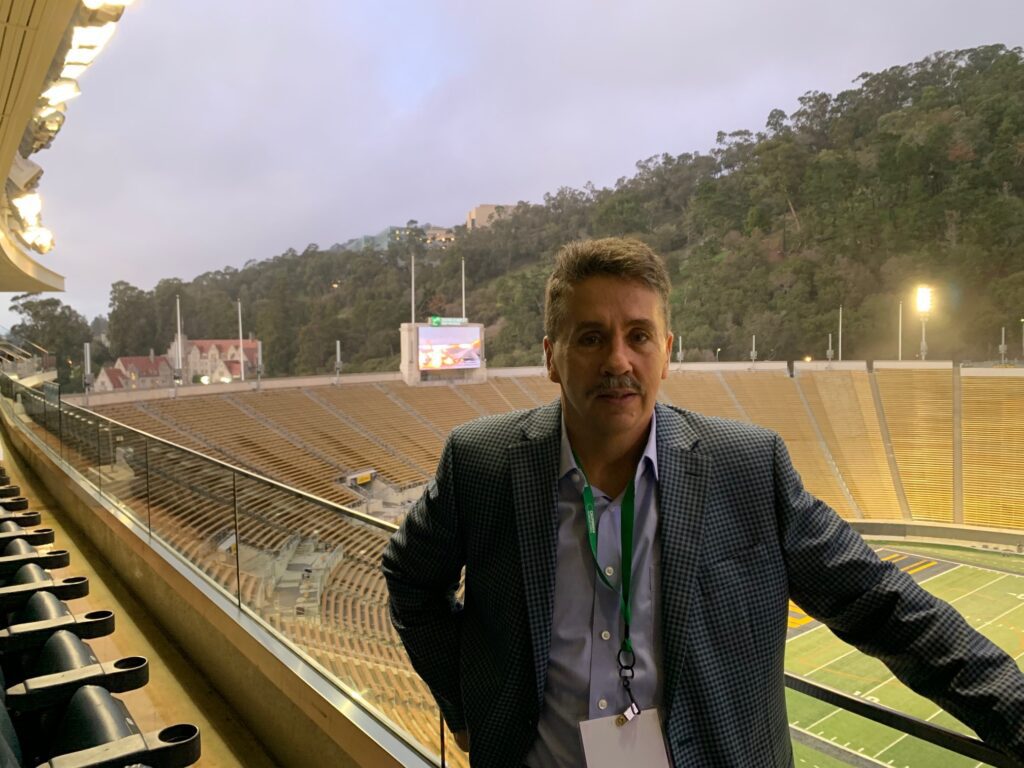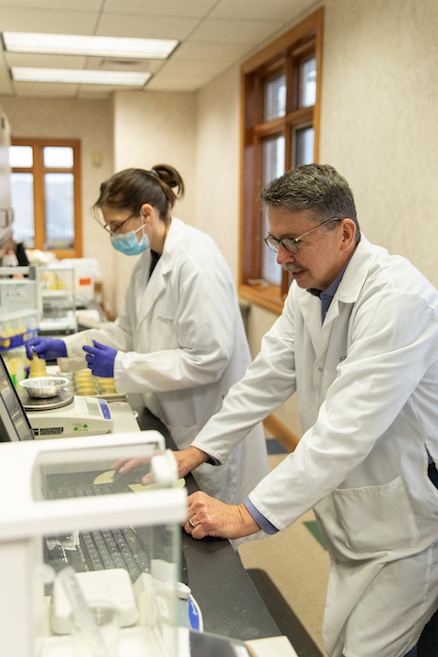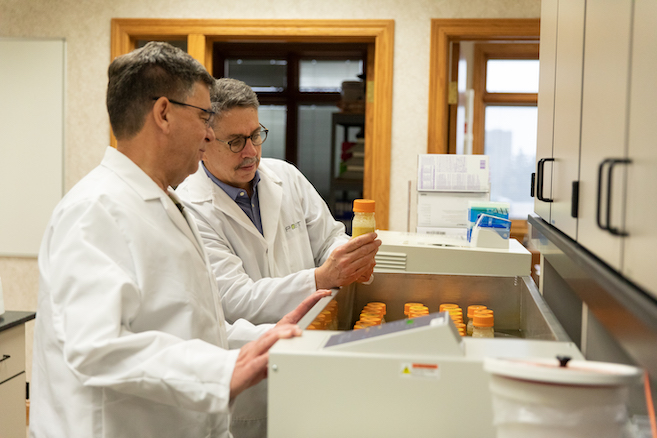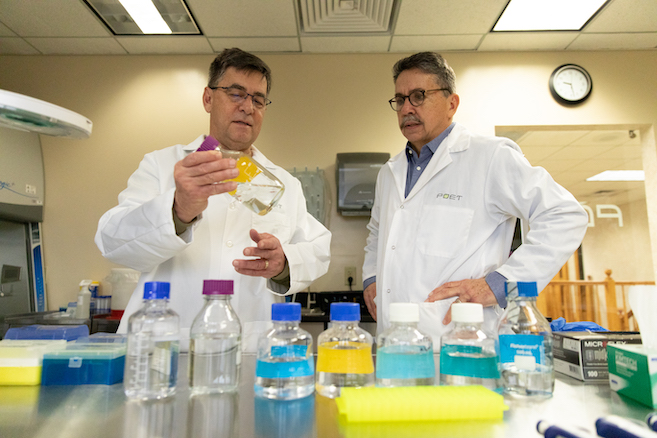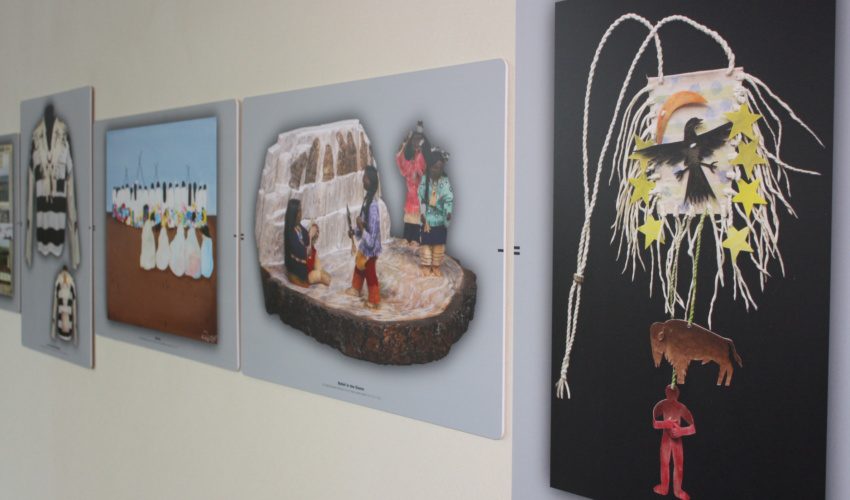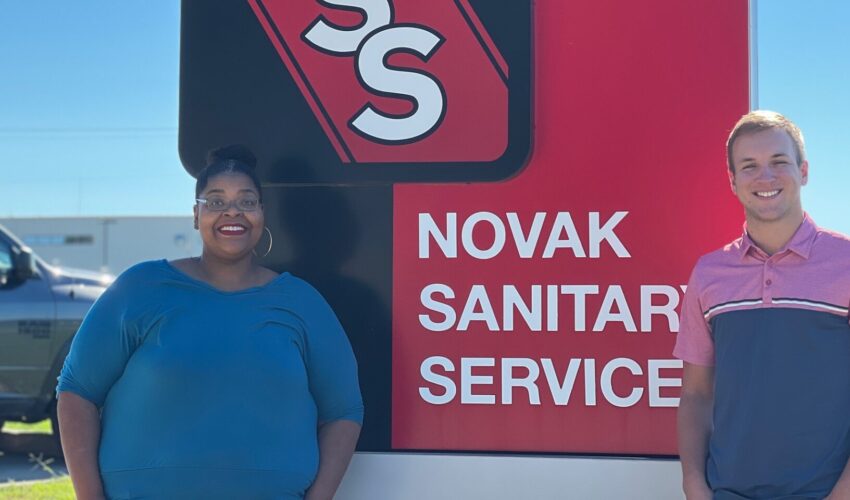POET, state bioscience leader honored with national industry recognition
June 27, 2022
This paid piece is sponsored by South Dakota Biotech.
He’s an accomplished technology innovator and leader, both at POET and for the state’s bioscience community.
And the industry has recognized it, naming Steve Lewis the winner of the Charles D. Scott Award, honoring the founder of the Symposium on Biomaterials, Fuels and Chemicals, which recognizes individuals who have made distinguished contributions to enable and further the use of biotechnology to produce fuels and chemicals.
POET is the world’s largest producer of biofuel in addition to high-protein animals feeds, biodiesel and renewable diesel feedstock and other value-added bioproducts. Lewis, who serves as vice president of innovation and research, has broad experience in the field of industrial biotechnology, working in multiple business and technical functions, including research and development, quality assurance, production, marketing, sales and operations.
“He’s a creative thinker who connects concepts and new ideas in biology and engineering with significant value-added impacts supporting growth at POET,” according to the symposium, which recently awarded him the honor.
Lewis also has served on the board of South Dakota Biotech for nine years, including two years as chair.
“We’re fortunate as an organization to benefit from Steve’s leadership and deep industry knowledge and relationships,” said Joni Ekstrum, executive director of South Dakota Biotech. “It’s wonderful to see him recognized on a national level among his peers.”
We caught up with Lewis to learn more about his career, passion for the industry and latest achievement.
First, congratulations on your recent industry honor! What was it that originally attracted you to work in industrial microbiology?
Thank you! I have always enjoyed science, especially microbiology. From a historical perspective, I find it fascinating that advances in society over time have been linked to a knowledge and understanding of microbiology. From brewing to food production to disease prevention, everything relates back to those sciences.
I had great instructors at Ohio State University, and they instilled a lot of curiosity in me about ag biotechnology and microbiology. They pushed me to understand and develop insights into new applications and the application of enzymes. In biology, agriculture and food processing, an understanding of nature’s catalysts is key! My time at Genencor International, now IFF, also helped to plant the seed of curiosity that was able to germinate in with POET Sioux Falls.
What are some of the professional accomplishments you’re most proud of?
At the start of my career, I worked for a startup biotechnology company (Enzyme Technology Corp.) in northern Ohio. I helped develop products that would lead to them being successful enough to be acquired by a much larger company. Very few startups are able to be successful enough to get products to the market, let alone grow enough to be purchased, so that’s something we were incredibly proud of. The acquiring company eventually had a strong ownership lineage from Eastman Kodak/Finnsugar, Genencor International, DuPont and now IFF.
This led Broin and Associates (consolidated and renamed POET in 2007) to become our customer. I saw a lot of potential in what the company was doing throughout the 1990s. I had many opportunities to visit with Jeff Broin and share some of my vision of what could be accomplished if a company could marry biology with engineering. Jeff seized on the idea and offered me a job in 1998! I left a big, well-recognized company to join a small startup of 15 people.
I am proud to have been a part of the team that has grown what once was the smallest bioethanol producer in the industry to the largest producer in the world. Our team developed a high-gravity (high-solids) fermentation process by identifying and testing improved enzymes and yeast systems. We established a bioprocessing model that allowed us to create additional bioproducts from corn.
As part of this evolution of technology, Jeff Broin started our initial efforts into intellectual property strategy. We began our patenting and trade secret efforts. Our fist patent centered on the BPX technology. If a rising tide raises all ships, it was my job to make sure that our ships got out of the harbor first. A strong argument can be made that Jeff Broin’s vision to execute the ideas we had together back in 1998 led to the dramatic growth for not only POET but fostered advances in the entire bioethanol industry. Progress made by POET spurred coevolutionary advances in the entire ag biotech and biofuels sector.
I know it sounds a little corny — no pun intended 😊 — to some people, but I always think of Jeff Broin and the Broin family as a little like George Bailey and his family from “It’s a Wonderful Life.” Bedford Falls was a lot different without George Bailey, and the biofuels industry is a little different today because of Jeff’s pursuit of innovation.
I would be remiss in describing whatever I have accomplished in my career without also acknowledging the strong contributions of other POET leaders like Rod Pierson, Deb Roth and many others. It is a myth to ascribe innovative advances to single individuals. It takes not only other key players but a team of folks focusing on excellence in operations and innovation. This is true both within organizations but also in the collaborations that we were able to establish.
I think it also strikes a chord within the POET leadership team to recognize that one of the key core company cultures we were able to establish and embrace is that of a learning organization. Society, technology and nature are complex. If you don’t have a learning organization approach, you have less of a chance of advancing up the technology S-curve.
What are you currently working on at POET that excites and energizes you?
I’m still focused on innovation and development, but what excites me now is instilling curiosity and a learning approach in new people. I enjoy working with younger folks and team members throughout the organization to foster their drive and passion for science. My job is still to be creative and innovative in advancing our processes but even more so to develop the next set of leaders for POET and South Dakota.
The first 20 years of my career at POET were focused on improving the efficiency of conversion once the corn is delivered to the bioprocessing facility. With other leaders throughout the POET organization, we are now focused on improving the efficiency of the front end of the agricultural production process, before the corn is delivered to the plant. If we can advance farming practices and biotech inputs in our partner farming communities to lower the carbon intensity of our biocrops, modern agriculture can provide part of the solution to climate change.
A core facet of the philosophy of science is to balance advocacy with inquiry. Advocacy states this is what will work. Inquiry comprises testing what’s advocated so we can make it better. Falsification of conjectures is integral to helping companies advance up the learning curve in the pursuit of innovative excellence. A key aspect of the process is to make conjectures regarding what your technology can accomplish now and in the foreseeable future. Mistakes are inevitable. The learning curve occasionally takes an unintended step backward. A learning organization approach helps a company avoid the trap of faking it and never making it. I am very proud of South Dakota’s technology and the people I have worked with throughout the state. In South Dakota, whether it’s at POET or within South Dakota Biotech, “We make it! We don’t fake it!”
As a leader at POET, you’re integral in building the team. What would you say to people considering a career at POET and in South Dakota? What has kept you here?
I joke with everyone new person coming in and considering POET and South Dakota that we only have three bad problems here: December, January and February.
In all seriousness though, South Dakota is a wonderful place to live and raise a family. There is a great balance between work and leisure activities. Sioux Falls especially offers the best of both worlds: You get the small-town feel while having everything you could need or want that a larger city might offer.
At POET, you contribute to innovations that feed the world, fuel the world and heal the world. That’s something you can feel good about doing every day; it helps you get up in the morning when you have that kind of job. Both POET and South Dakota give you a chance to have a career that you believe in.
You’re also a leader within the biotech industry, serving on the board of South Dakota Biotech, including as the current president. What are your impressions of this industry’s trajectory in the state?
It used to be that the biotech industry and technology companies were centered in hubs on the U.S. coasts, whether in Silicon Valley, the Research Triangle or the Boston area. South Dakota is no longer flyover county when it comes to biotechnology. We’re establishing a great foundation of operations here.
We’ve built this ecosystem of biotech companies. They provide jobs in the STEM field for those interested. In the past, students educated in science, math and engineering in South Dakota would have to leave the state to find jobs; now, they can study here, work here and raise their families here.
What would you like to see occur in Sioux Falls and South Dakota to make us an even more appealing state to grow this industry?
I’d like to see more recognition within our state and from federal political leaders of the contributions that biotechnology makes to the economics of our state and our nation. It is critical that our leaders recognize that we won’t be able to feed, fuel, heal and employ the world if we don’t embrace the science of biotechnology.
I’d also like to see more affordable housing for young people. I think that if you can get a house in Sioux Falls, this city offers you everything you could want for work, entertainment, sports, etc. The growth of our universities has been wonderful to see, and I want more of our young people to have the opportunity to stay here in South Dakota and Sioux Falls.
Is there anything else you’d like others to know about your work?
It has been incredibly fulfilling to work for a company that creates jobs and fosters innovative efforts that can help address future challenges like climate change and carbon intensity. With all of the challenges the world is facing now, it’s good to generate hope for the future instead of fostering anxiety. The media generates enough dread and apprehension in not only our youth but our fellow members of society. When you work in a STEM field and embrace a learning organization approach, you get a reality check by Mother Nature every single day. There are consequences to every technology that is developed. POET’s innovative learning organization approach is focused on developing a more desirable set of future problems.
POET works to falsify conjectures to get to the truth of what we should do. We advocate for the right answer while also inquiring and testing the hypothesized right answers to find even better answers. At its core, that’s what a scientific approach can provide society. That’s the type of company that I’ve been proud to work for these past decades.
Wow! Has it been that long! Time flies when you are having fun!

